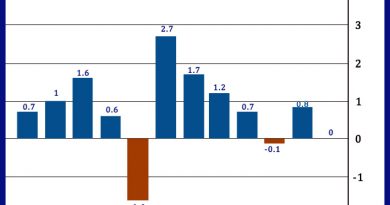Analysts remain bullish for sharemarket recovery
Market watchers are optimistic that the Australian sharemarket can produce high single-digit returns this financial year, despite its recent slump towards bear market territory.
The benchmark S&P/ASX 200 Index – a key measure of the largest Australian companies trading on the Australian Securities Exchange (ASX) – plunged more than 15 per cent from peak to trough between mid-April and mid-June.
However, it has since recovered to end the financial year with a loss of about 10 per cent – just its third financial-year loss in a decade.
Australian shares prices, overall, finished the 2021-22 year in the red, but market watchers are expecting our market to do better this financial year.Credit:AP
A bear market is defined as shares falling by 20 per cent or more from their highs.
Many superannuation funds also posted negative returns, particularly “growth” and “balanced” fund options that are more heavily weighted toward equities.
AustralianSuper, the country’s largest super fund with more than $261 billion in retirement savings, recorded an annual return of -2.73 per cent on its “balanced” option, where 90 per cent of its 2.7 million members have their retirement savings.
‘Cheaper valuations, attractive dividend yields and likely relative economic outperformance is supportive of local shares.’
Rising inflation and interest rates hit market sentiment towards companies considered to be higher risk.
CommSec figures show that the information technology sector was the worst performer on the ASX over the past financial year with a decline of 38.7 per cent, followed by consumer discretionary at 22.8 per cent.
The best was utilities, up 29.3 per cent, followed by energy, up 24.5 per cent.
Nevertheless, CommSec analysts are still tipping the S&P/ASX 200 to climb between 7 per cent and 9 per cent this financial year which, given forecasts for a broader economic slowdown, would be a good result.
It says many companies remain “cashed up” and their profits are at record highs. However, some would find it hard to pass on higher costs to consumers as inflation climbs, interest rates rise and consumer spending slows.
With their margins under pressure, “earnings are likely to adjust lower as growth slows,” CommSec says.
However, “cheaper valuations, attractive dividend yields and likely relative economic outperformance is supportive of local shares,” it says.
Shane Oliver, chief economist at AMP, says that given the uncertainties ahead, it is still too early to call that the sharemarket has bottomed.
He says the September quarter is traditionally weak for shares, and the bottom could happen later in the year.
“Shares are likely to see continued short-term volatility as central banks tighten [interest rates] to combat high inflation, the war in Ukraine continues and fears of recession remain high,” Oliver says.
“However, we see shares providing reasonable returns on a 12-month horizon as valuations have improved… and inflationary pressures ease through next year, allowing central banks to ease up on the monetary policy brakes,” he says.
Peter Warnes, head of equities research at Morningstar, is a little more cautious.
He expects consumer demand to be crimped as inflation erodes household income. “Higher mortgage rates will cool house prices and make consumers feel poorer, and less inclined to spend,” he says.
Warnes says a technical recession in Australia – defined as two consecutive quarters of negative gross domestic product growth – is “not out of the question” in 2023.
“The world is likely to experience a downturn, with the risk highest in the eurozone… although the US may not be far behind,” Warnes says. “Australia is better placed, but not immune.”
The Conversation’s annual survey of economic forecasters from universities and financial institutions puts the chance of a recession in Australia in the next two years at 20 per cent, with a likelihood of recession in the US at 40 per cent.
The forecasters expect our inflation rate to peak at 7.1 per cent towards the end of the year, before declining in 2023.
- Advice given in this article is general in nature and is not intended to influence readers’ decisions about investing or financial products. They should always seek their own professional advice that takes into account their own personal circumstances before making any financial decisions.
Most Viewed in Money
From our partners
Source: Read Full Article



